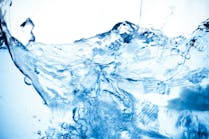Proteolytic detergents; instruments common to open-heart surgery
Q
Can you explain what the term “proteolytic detergents” means to people working in a medical device reprocessing department?
A
Proteolytic detergents are any detergents that breakdown protein soils. This includes protease enzyme detergents, high alkaline detergents, neutral detergents—any detergent designed to hydrolyze and breakdown proteins. Blood is the number one soil on the majority of clinically used medical devices. Since blood is made up of proteins, it makes sense that cleaning chemistries be formulated to clean blood off of medical devices. Cleaning chemistry companies look to ASTM standards to help show their products can do what they say they do, which is to remove blood protein and other soils from medical devices.
Why do I mention ASTM? ASTM International, formerly known as the American Society for Testing and Materials (ASTM), is a globally recognized leader in the development and delivery of international voluntary consensus standards for materials, products, systems and services used in healthcare, medical device design, and many other industries.
ASTM has many committees focused on medical device products. Using ASTM test methods can help users to independently compare cleaning solutions using standardized tests for evaluating their effectiveness. I will highlight some ASTM standards that I feel users should ask for when comparing or changing cleaning chemistries, or cleaning verification tests for challenging their equipment’s ability to clean blood, protein, and other soils from medical devices.
- ASTM D7225-13(2019)e1 Standard guide for blood cleaning efficiency of detergent and washer disinfectors
- ASTM D8179-18 Standard Guide for Characterizing Detergents for the Cleaning of Clinically Used Medical Devices
- ASTM F3208-20 Standard Guide for Selecting Test Soils for Validation of Cleaning Methods for Reusable Medical Devices
- ASTM F3293-18: Standard Guide for Application of Test Soils for the Validation of Cleaning Methods for Reusable Medical Devices
- ASTM F3321-19: Guide for Methods of Extraction of Test Soils for the Validation of Cleaning Methods for Reusable Medical Devices
- F3438-21 Standard Guide for Detection and Quantification of Cleaning Markers (Analytes) for the Validation of Cleaning Methods for Reusable Medical Devices
These are just some of the tests I would use. You may combine the results from these standardized tests with other information, and you can make an informed decision based on data and science to keep or change your cleaning chemistries and/or cleaning verification tests. You can purchase the ASTM Standards at www.astm.org.
Q
I just moved to a major hospital that does open heart surgery. Where I worked before, we did not do those type of procedures. It is a lot of new instruments. What is the best way to learn them?
A
The way you worded your question, I must assume you do not have a dedicated educator at your new facility. My advice is the following (not necessarily in this order):
- Recheck with your manager on what they already have for training in the department for cardiovascular instruments.
- Ask who is your main supplier of surgical instruments and see if the company has any learning exercises on cardiovascular instrumentation.
- Ask your manager who is the best person to mentor (shadow) within your department for these instruments.
- Ask to spend a day in one of the cardiovascular operating rooms (OR) to observe surgery.
- After the observation, ask an OR staff member to share how they have learned cardiovascular instrumentation.
- Search on the Internet under, “cardiovascular instrumentation,” to find programs to help you learn these instruments.
- Take lots of notes and pictures, and create your own “book.”
Remember, you were hired because you have the critical thinking skills to work at your new facility. Take this opportunity to show you have what it takes and put in place a training program on learning these instruments for others (both new hires and current department staff) as a refresher guide.
Lastly, if you are certified with IAHCSMM, apply to write your fellowship on how you put a learning program together for cardiovascular instrumentation, or a poster for the annual IAHCSMM meeting. I think it would be a great topic for either project. You have identified a concern, worked with others to resolve the learning knowledge gap, and, thus, improved quality in the department by increasing the knowledge of all staff. Good luck on your new journey.
References:
1. ASTM International - Standards Worldwide. https://www.astm.org. Date accessed 8/25/2021.
2. ASTM D7225-13(2019)e1 Standard guide for blood cleaning efficiency of detergent and washer disinfectors. https://www.astm.org/Standards/D7225.htm.
3. ASTM D8179-18 Standard Guide for Characterizing Detergents for the Cleaning of Clinically Used Medical Devices. https://www.astm.org/Standards/D8179.htm.
4. ASTM F3208-20 Standard Guide for Selecting Test Soils for Validation of Cleaning Methods for Reusable Medical Devices. https://www.astm.org/Standards/F3208.htm.
5. ASTM F3293-18: Standard Guide for Application of Test Soils for the Validation of Cleaning Methods for Reusable Medical Devices. https://www.astm.org/Standards/F3293.htm.
6. ASTM F3321: Guide for Methods of Extraction of Test Soils for the Validation of Cleaning Methods for Reusable Medical Devices. https://www.astm.org/Standards/F3321.htm.
7. F3438-21 Standard Guide for Detection and Quantification of Cleaning Markers (Analytes) for the Validation of Cleaning Methods for Reusable Medical Devices. https://www.astm.org/Standards/F3438.htm.
8. Basile, Ralph J. (2006). ASTM Publishes New Guideline: D7225 Standard Guide for Blood Cleaning Efficiency of Detergents and Washer-Disinfectors. Managing Infection Control, 56. http://www.healthmark.info/CleaningVerification/TestKits/ProformanceJournal.pdf.
9. Boler J. (2018, June 13). New Guide to Improve Cleaning of Medical Devices. The Auditor (an Exemplar Global website). https://www.theauditoronline.com/new-astm-international-guide-supports-proper-medical-device-cleaning/.

Stephen M. Kovach
Stephen M Kovach, BS, CFER, started in the medical field in 1975 as a sterilization orderly and has worked in many positions within the Healthcare Industry. He presently is Clinical Educator Emeritus at Healthmark, A Getinge company.





